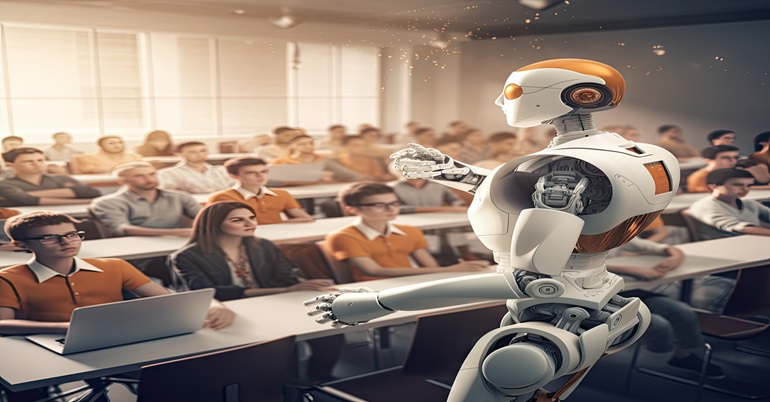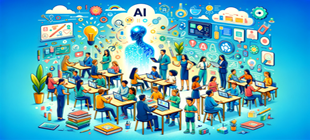Welcome to AMIEE Association
AI Learning

Artificial Intelligence (AI) is dramatically transforming the landscape of education, offering innovative solutions that make learning more accessible, personalized, and efficient. AI-powered tools and platforms are enhancing the educational experience for children and youth by catering to their unique needs and learning styles. This technology not only supports teachers in delivering tailored instruction but also empowers students to take control of their learning journey.
AI in education is not just about making learning more efficient; it's about making it more inclusive and personalized, ensuring that every student has the opportunity to succeed
One of the significant impacts of AI on education is the personalization of learning. AI algorithms can analyze individual student performance and learning behaviors to create customized learning paths. Tools like adaptive learning platforms adjust the difficulty of tasks in real-time, ensuring that students remain challenged but not overwhelmed. Platforms such as DreamBox, Knewton, and Smart Sparrow are exemplary in providing personalized learning experiences that adapt to the pace and level of each student. This personalization helps in addressing diverse learning needs, thereby promoting better engagement and improved academic outcomes.ue laudantium, totam rem aperiam,
-
Adaptive Learning Platforms: Tools that adjust learning content and difficulty based on student performance.
-
Accessibility Tools: AI-driven applications that support students with disabilities, such as speech-to-text and translation services.
-
Automated Assessments: Systems that provide immediate, detailed feedback on student performance and suggest interventions.
-
Predictive Analytics: AI tools that identify potential learning gaps and recommend proactive strategies for improvement.
Accessibility is another area where AI is making a substantial difference. AI-driven educational tools are breaking down barriers for students with disabilities, language differences, and other challenges. For instance, speech-to-text and text-to-speech applications, such as Google’s Live Transcribe and Microsoft's Immersive Reader, enable students with hearing and visual impairments to access educational content more easily. Additionally, AI-powered translation tools help non-native speakers to understand and participate in the learning process, fostering a more inclusive educational environment.
AI is also revolutionizing the way assessments are conducted and utilized in education. Traditional testing methods are often limited in scope and fail to provide immediate feedback. AI-enabled assessments can offer instant, detailed insights into a student’s performance, highlighting strengths and areas for improvement. Tools like Gradescope and Coursera’s automated grading systems help teachers evaluate assignments more efficiently and accurately, allowing them to focus more on instructional support. Moreover, AI can predict potential learning gaps and suggest interventions before they become significant issues, thus supporting proactive educational strategies.




Leave A Reply